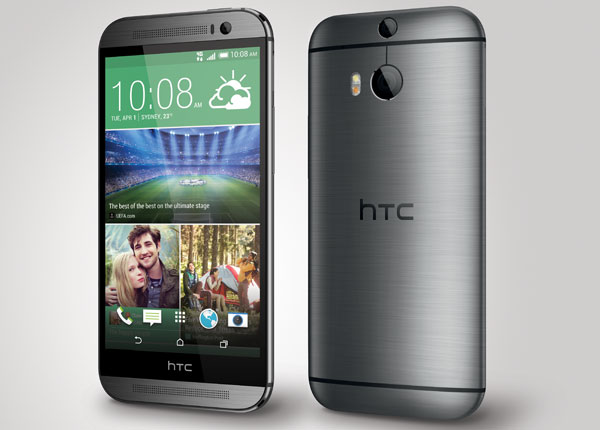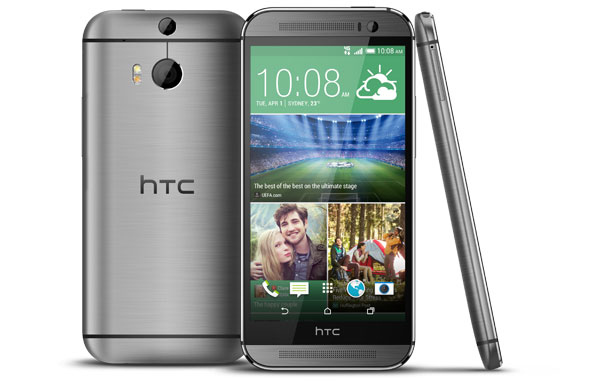
HTC’s just announced its latest “hero” phone, the One (M8). Here’s my (very) early impressions.
I was able to score some hands-on time at a locked down preview event in Sydney a week ago, along with a strict non-disclosure agreement that has now expired. This isn’t a full review, because I’ve had perhaps fifteen minutes to test out a preview sample of the phone; more some early hands-on thoughts about HTC’s latest hero phone.
HTC One M8: Upsides
I declared the HTC One (M8)’s predecessor, the HTC One to be my favourite Android phone of 2013, largely due to the exceptional build quality. That hasn’t appreciably changed with the HTC One (M8), which still features a solid aluminum design that feels wonderfully light but still sturdy in the hand. On the technical side, the quad-core processor under the hood certainly feels pretty nippy in ad-hoc usage, although that’s really something that needs some serious hands-on time to fully appreciate.
There are some well thought out upgrades on offer as well. I’m told we’ll only see the 16GB through official channels here in Australia, but this doesn’t matter hugely given that it now has a microSD card slot.
The tap-to-wake and other actions — HTC refers to them as “Motion Launch” seemed to work reasonably well during my limited testing time. They’re still a little on the gimmicky side, but they’re at least functional. I may not be a huge fan, but they’re clearly popular functions to have.

HTC’s claim is that the HTC One (M8)’s new ultrapixel camera takes in even more light for improved low light performance. I wasn’t able to test that within the confines of the preview room, but those who love effects filters will no doubt have a field day with the One M8’s range of features, which range from post-shot focusing, Lytro style, to custom backgrounds and even animated falling snow or autumn leaves.
HTC One M8: Downsides
The camera’s features look good on a specification sheet, but there are limitations that popped up even in my early testing. The 3D “Dimension Plus” feature, which uses both rear cameras to allow you to tilt and reframe shots won’t work if you use the flash. Or if you use the Burst mode, or any of the Zoe modes. I also found it had a sometimes weird relationship to the objects it was shooting, as sometimes tilted objects lost their perspective, leading to some weird flattening out of pictures.

Blinkfeed is still very much in play with the HTC M8. I’m not a fan, and while HTC claims it’s more intuitive with bundles of stories around a single topic and an easier framework to develop for, I do wish it was an optional app rather than an entire homescreen.
HTC claims that its “BoomSound” speakers are now 25 per cent louder. That’s impressive on a technology front, given how thin this phone actually is, but at the same time, I’m not sure I want to encourage yet more people to use their phones as speakers on public transport.
The HTC One M8 isn’t waterproof either (or at least at the briefing it wasn’t announced to be), so drowning a BoomSound speaker would invariably be fatal for the phone, even if it was satisfying.
HTC haven’t yet announced local pricing, but stated that it would be coming to all carriers in April. I’d expect to see it in the $800-$999 price range, or higher tier of contract plans when it does officially land on our shores.
Update: Optus has announced it’ll offer the HTC One (M8) from April 1st on a $60/month plan with $12 monthly handset repayments for a minimum 24 month contract cost of $1728
Telstra’s also announced availability with plans starting at $70/month plus $12/month handset repayment for a minimum 24 month contract cost of $1968. Telstra also noted that the HTC One (M8) is 700Mhz compatible, which won’t come into play until next year at the earliest.
Vodafone will offer the HTC One (M8) on a $65/month plan plus $10/month handset repayment for a minimum 24 month contract cost of $1800.